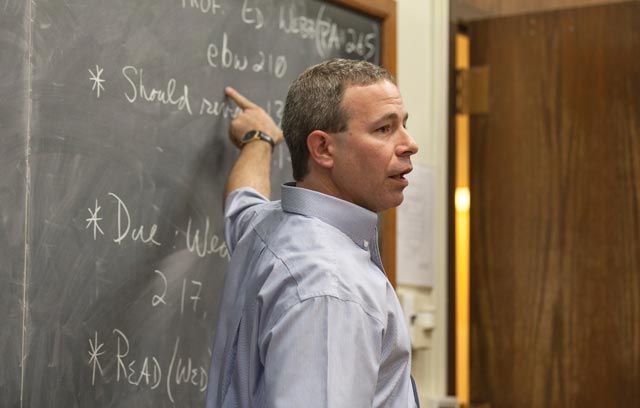In his research, associate professor Edmund Webb III of mechanical engineering and mechanics applies simulation techniques across multiple length and time scales to better understand the mechanical response of various materials. Current studies include stress evolution in nanostructures and thin films, capillary driven fluid flow in reactive flow systems, and mass and heat transport processes at interfaces between dissimilar materials.
His recently-funded NSF proposal, entitled UNS: Direct Computation of Capillary Force Constitutive Relations for Nanosuspensions, will support Ed's efforts in the assembly of nanoparticles from aqueous suspensions.
The deposition of nanoparticles onto a solid surface is an important operation in the assembly of nanoparticles to form new materials for a variety of technological applications. This NSF-sponsored project will carry out atomic-scale simulations of the spreading of water droplets containing nanoparticles of gallium nitrideo n both pure and chemically modified silicon surfaces. Simulations will be conducted for sessile drops and for drops that impact the silicon surface. Patterning of gallium nitride nanoparticles on the silicon surface will be examined. Understanding the forces that determine the spreading of the drop and the deposition of the nanoparticles is essential to design a bottom up approach to manufacturing new materials for optoelectronic applications.

